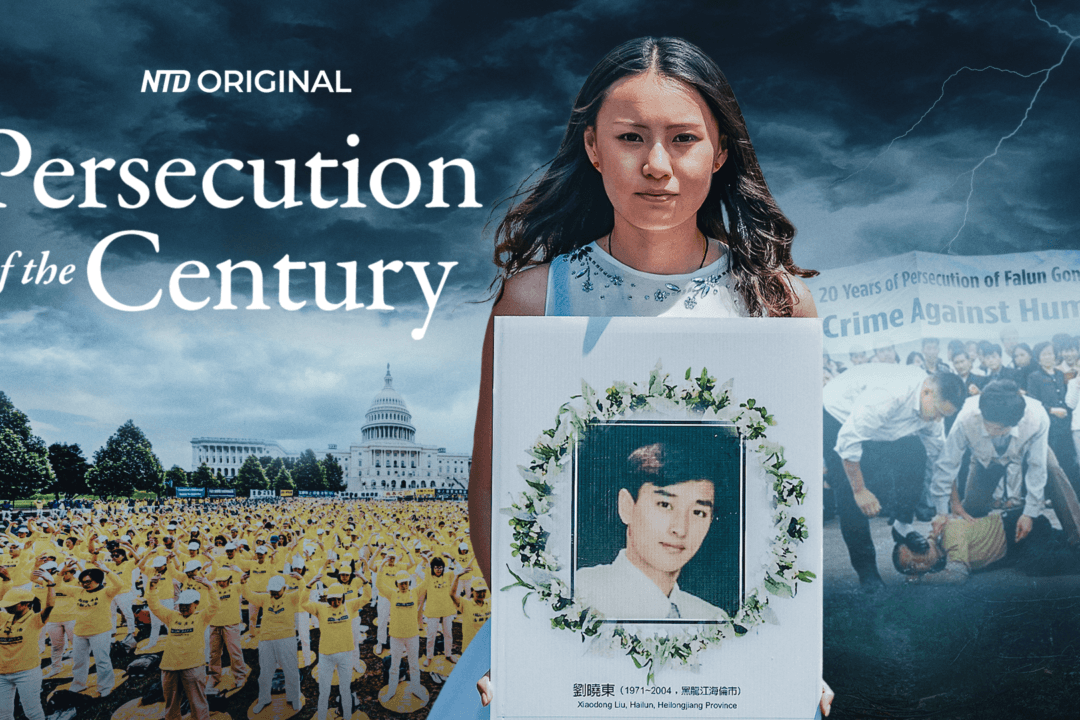Rumors have been spreading on China’s Internet that Guo Boxiong, a former vice chairman of China’s Central Military Commission, has recently attempted to flee China disguised as a woman, only to be intercepted at customs. Police placed two netizens under criminal detention and penalized 37 others on charges of “fabricating online rumors.”
According to the rumors, all incoming and outgoing flights in Shanghai on July 14 were delayed because authorities were catching someone, and in order to prevent that person from fleeing or resisting, the airport was locked down under the pretense of military exercises.
On July 20, Communist Party mouthpiece Xinhua quoted the police department as saying that a Beijing netizen surnamed Ma and a Hainan netizen surnamed Pei made similar posts on Weibo, a Chinese Twitter-like service. The Xinhua report said the Public Security Department had placed both Ma and Pei under criminal detention, and issued penalties and admonitions to 37 other netizens.
The Great Escape
When Xu Caihou, another former Vice Chairman of the Central Military Commission, was sacked on June 30, online rumors were already claiming that the regime had caught another “big tiger” of the same military rank: Guo Boxiong.
By July 15 there were a number of online rumors about Guo disguising himself as a woman and fleeing the country. A story called “The Great Escape of General G,” detailing Guo’s escape, including the time and the flight number, was widely circulating on the Internet.
Rumors or Predictions?
Chinese political commentator Huang Jinqiu told NTD that the so-called “rumors” are the result of the Chinese Communist Party’s opaque political operations and lack of press freedom.
“A lot of information was labeled as rumors, but much of it turned out to have been accurate predictions,” Huang said. “From the incident of Wang Lijun fleeing to the U.S. embassy in Chengdu, to the Bo Xilai affair, including the Neil Heywood murder by Bo’s wife, to Zhou Yongkang’s coup plot, one after another, these were later proven to be true.”
Top-Level Leaks
Zhu Xinxin, former editor of Hebei People’s Radio, told NTD that a variety of strange political rumors have been circulating in recent times, and many of them were leaked by top-level CCP officials amid their infighting.
“Xi Jinping’s anti-corruption campaign has created panic among the corrupt officials, hence there were many complicated situations,” Zhu said. “This has caused a lot of intentional or unintentional information leaks from insiders. This kind of verbal information could be distorted,” Zhu said.
More Rumors
Other widely spread online rumors are that former Politburo member Zeng Qinghong is being investigated, singer Song Zuying was arrested, Jia Qingling is jailed in Inner Mongolia, and many other corrupt officials are being arrested.
Regarding the arrests, Zhu said the main reason the CCP is arresting netizens under the pretext of suppressing rumors is in retaliation to the news of its internal power struggles being spread widely among the people.
“The conflicts within the CCP and in society are becoming increasingly acute, but none of this is being truthfully reported on,” Zhu said. “[The information] gets passed on through word of mouth, and thus rumors are formed. The purpose of ’suppressing rumors’ is to intimidate people, in order to deter public opinion.”
Strict Controls
Since the news of Guo Boxiong’s escape was released, the CCP’s Internet Information Office announced via Xinhua that 31 websites with relatively more so-called “rumors” would face being shut down and rectified.
In fact, authorities have enforced a series of strict controls of online speech this year. The “Internet Security and Information Technology Leading Group,” led by Xi Jinping, was formed in February. In May, the Internet Information Office, the Ministry of Industry and the Public Security Department jointly carried out a so-called “Special Rectification Campaign on Instant Communication Tools” nationwide for a month. At that time, communications companies also claimed to establish “special teams” of individuals to refute rumors.
Huang Jinqiu told NTD: “There is lack of free and democratic supervision or freedom of public opinion in China. Are the so-called rumors really rumors? Netizens definitely have their own take and standards. If the government won’t clarify or disclose something, netizens will get the information from other sources, then confirm with each other, and this becomes a kind of indirect supervision by public opinion.”
Many commentators say the year 2013 saw the most severe control of speech in China. From China’s web portals to newspapers and magazines, from traditional communication platforms to emerging social media platforms, from popular bloggers to celebrities and reporters, all of them experienced the CCP’s suppression.
According to the CCP’s data from last January, during the “Clean the Internet” campaign last year, more than 10,000 so-called illegal websites were investigated and more than 11,000 people were arrested.





